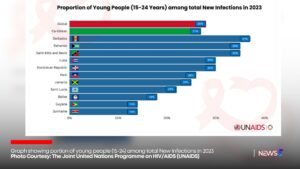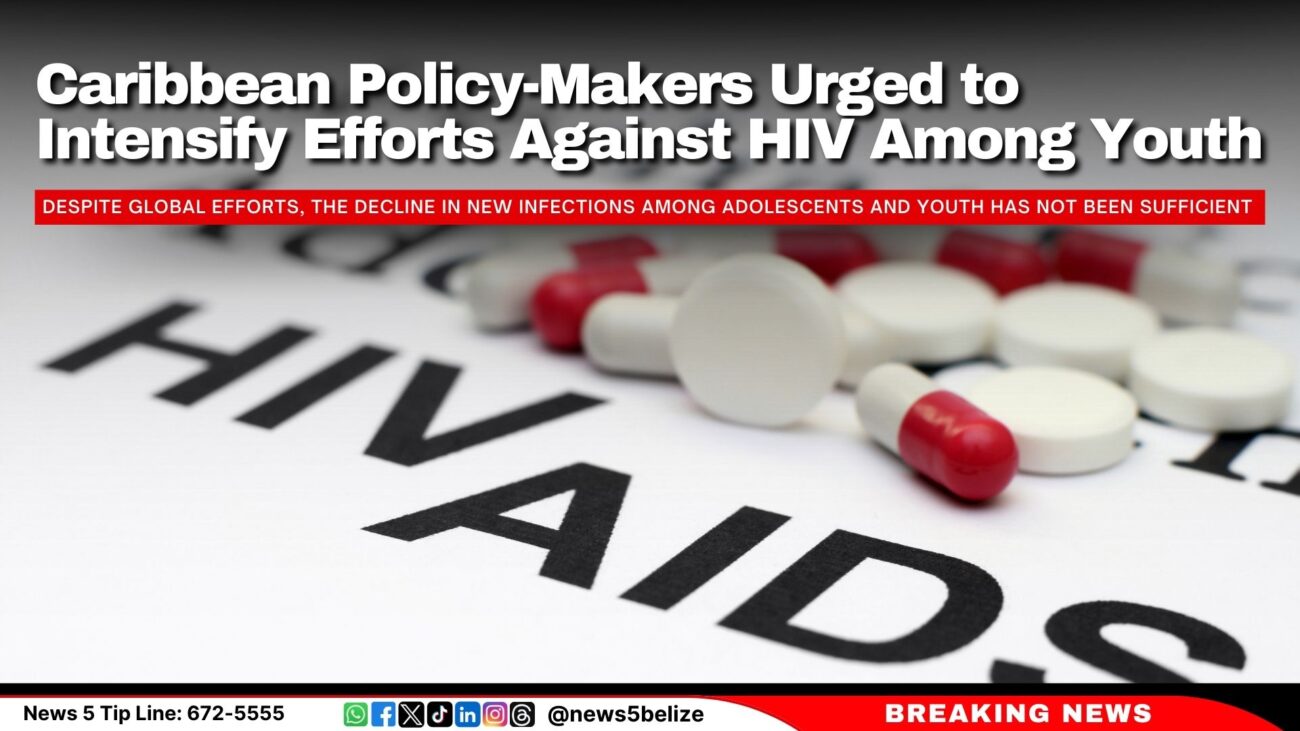Caribbean Policy-Makers Urged to Intensify Efforts Against HIV Among Youth
HIV infections among young people in the Caribbean are on the rise, with alarming statistics revealing that 27% of new cases in 2023 affect those aged 15-24—up from just 15% in 2020. The Multi-Country Director of the Joint United Nations Programme on HIV/AIDS (UNAIDS), Dr. Richard Amenyah, warns that without urgent action and innovative strategies, the region risks falling further behind in the fight against this devastating epidemic, jeopardising the future of its youth.
Despite global efforts, the decline in new infections among adolescents and youth has not been sufficient to control the epidemic.

Dr. Amenyah stated that young people aged 15–24 represented 28 percent of new HIV infections worldwide in 2023. In the Caribbean, this group accounted for 27% of the 15,000 new cases reported, a significant increase from just 15% in 2020. Additionally, 25% of all pregnant women living with HIV globally are between 15 and 24 years old.
Dr. Amenyah noted, “This rising proportion… warrants further investigation and serious attention if we are to end AIDS as a public health threat by 2030.” The situation is particularly alarming in countries like Barbados, where the total HIV incidence ranges from 14% in Suriname and Guyana to 37% in Barbados. Belize sits at an 18% HIV incidence. This “warrants further investigation and serious attention, if we are to end AIDS as a public health threat by 2030,” remarked Dr. Amenyah.

While there has been some progress since 2000, the decline in new infections has stalled, especially among adolescents aged 15-24. Dr. Amenyah highlighted that in 2023, “71% of new HIV infections among adolescents aged 10-19 years were among girls.”
Several structural barriers contribute to the epidemic’s growth among young people. Issues such as social norms and a lack of comprehensive sexuality education have made HIV prevention challenging. Stigma around HIV further deters young people, “Fear of rejection by peers and family members forces many young people to hide their HIV status,” Dr. Amenyah stated. He added, “Mental health services tailored to the needs of HIV-positive youth are often limited.”
To combat this crisis, policymakers are encouraged to adopt tailored strategies. Dr. Amenyah outlined several key approaches:
- Education: Integrating rights-based Comprehensive Sexuality Education in schools can empower young people with knowledge about HIV prevention.
- Youth-Friendly Healthcare: Creating safe environments for young people to access confidential health services is crucial.
- Targeted Prevention: Programs should focus on vulnerable populations, addressing legal barriers that hinder access to services.
- Youth Empowerment: Engaging young people in designing and implementing HIV programs will ensure their needs are addressed.
- Leveraging Technology: Digital platforms can be used to educate and connect young people with health services.
- Evidence-Based Approaches: Investing in robust data systems will help track the epidemic and inform policies.

Dr. Amenyah’s statement concluded, “Without greater attention to HIV among adolescents and youth, the world will not achieve its goal of ending the epidemic.” Urgent action is needed to reduce new infections and “make meaningful progress toward ending AIDS as a public health threat in the Caribbean by 2030,” he ended.







Facebook Comments